The South Asian Association for Regional Cooperation (SAARC) was established on December 8, 1985 with the objective to promote economic and regional integration among member countries
which include Afghanistan, Bangladesh, Bhutan, India, Maldives, Nepal, Pakistan and Sri Lanka. In 1998, SAARC member countries established SAARCFINANCE as a regional network of the SAARC
Central Bank Governors and Finance Secretaries. One of the key objectives of this forum is to establish dialogue on emerging economic and financial issues and enhance cooperation among member
countries by mutual sharing of experiences and ideas.
Studies, Seminars and Governors' Symposiums on pertinent topical issues are the main activities that the central banks of SAARC member countries organize in pursuit of the objectives of SAARCFINANCE. So far, 62 seminars have been organized covering certain global challenges, technological evolution, financial inclusion, and governance practices.
|
 |
|
|
|
Under the umbrella of SAARCFINANCE, the State Bank of Pakistan (SBP) has conducted 14 seminars so far and the international seminar on the "Potential Role of Big Data in Economic Policy," marks the 15th event in the SAARCFINANCE Seminar series hosted by the SBP.
|
SAARCFINANCE Seminar on “Potential Role of Big Data in Economic Policy”
(March 5-7, 2024, NIBAF, Islamabad, Pakistan) |
| Program Schedule |
| |
| Day - 1 (5-3-24) |
| 20:00-21:00 |
Official Dinner |
| |
| Day - 2 (6-3-24) |
| 08:45 - 09:15 |
Registration of Participants |
| 09:30 - 09:35 |
Recitation from the Holy Qur’an |
| 09:35 - 09:45 |
Opening Remarks by MD, NIBAF, Islamabad |
| 09:45 - 09:55 |
Inaugural Speech by Governor, State Bank of Pakistan |
| 10:00 - 10:30 |
Keynote Speaker 1: Mr. Mathew Saal | IFC |
| 10:30 - 11:00 |
Keynote Speaker 2: Dr. Naeem Uz Zafar |
| 11:00 - 11:30 |
Tea Break and Group Photo |
Panel Discussion 1st Session
11:30 - 13:00
(20 min Q&A) |
|
| 13:00 - 14:00 |
Lunch |
| 14:00 - 14:30 |
Keynote Speaker 3: Dr. Ishrat Hussain |Ex-Governor SBP |
Panel Discussion 2nd Session
14:30 - 16:00 (20 min Q&A) |
|
| 16:00 - 16:10 |
Concluding Remarks by Mr. Sohail Javaad | State Bank of Pakistan |
| 16:10 - onwards |
Certificate Distribution Ceremony |
| |
| Day - 3 (7-3-24) |
| 08:00 - 09:00 |
WGM |
| 09:00 - onwards |
Excursion trip |
|
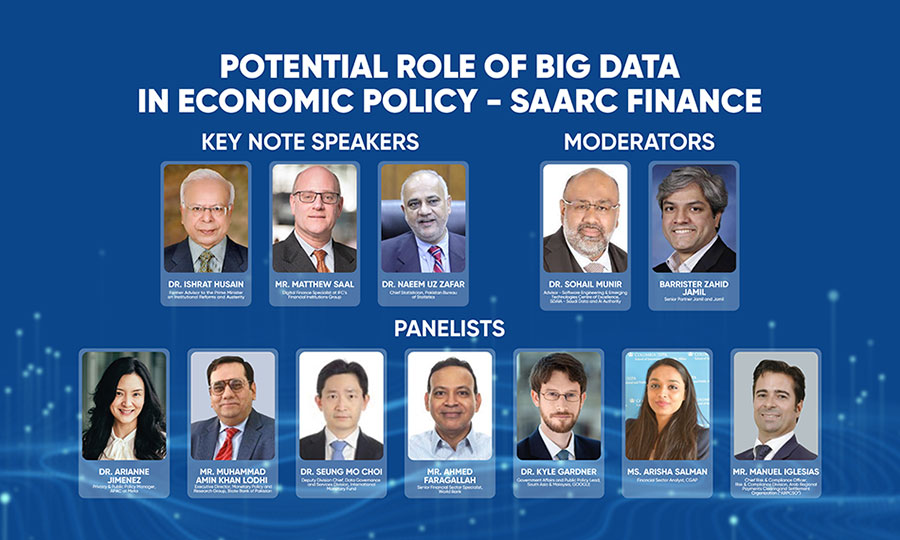
| KEY NOTE SPEAKERS |
|
| |
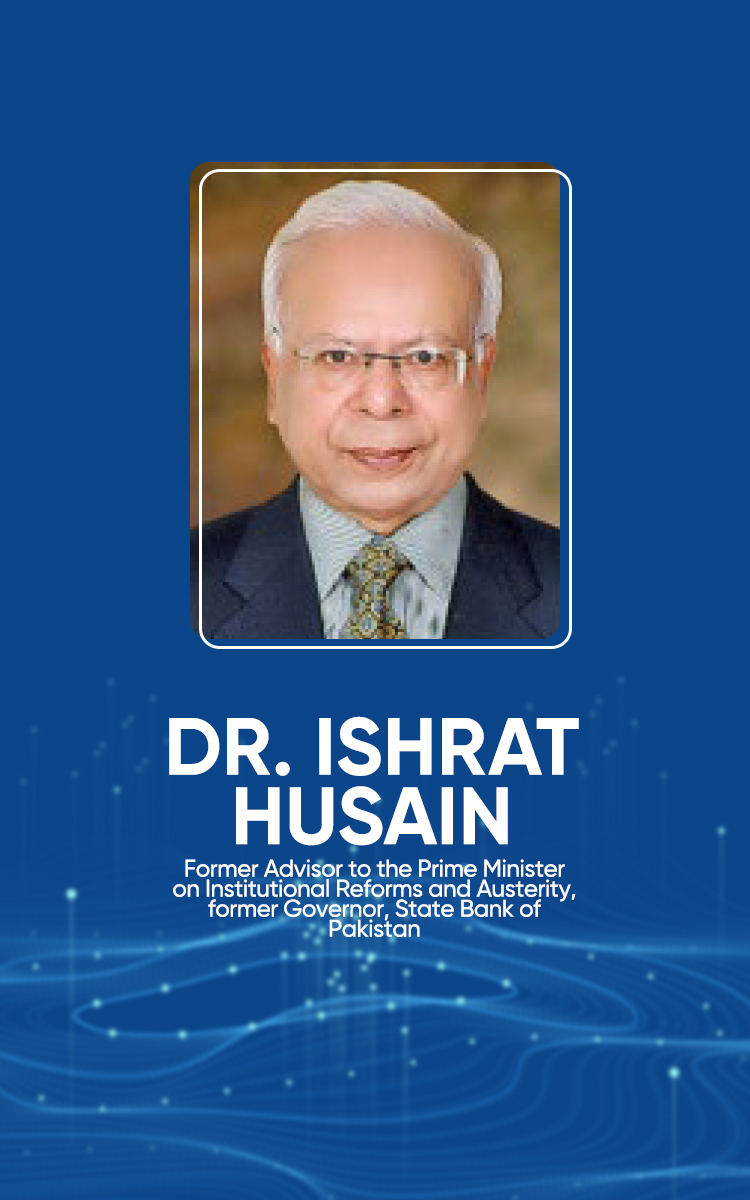 |
Dr. Ishrat Husain, Former Advisor to the Prime Minister on Institutional Reforms and Austerity, Former Governor, State Bank of Pakistan
Dr. Ishrat Husain was until recently Advisor to the Prime Minister on Institutional Reforms and Austerity with the status of Federal Minister and led the Government effort to
reform the Civil Services and restructure the Federal Government.
Dr. Husain had a distinguished career at the World Bank for over two decades from 1979-1999. Mr. Husain has maintained an active scholarly interest in development issues.
He has authored two dozen books, monographs and contributed more than 40 articles in refereed journals and 34 chapters in books. He is regularly invited as a speaker to
international conferences and seminars and has attended more than 150 such events all over the world since 2006. He has chaired or served on the Boards of several research
institutes, philanthropic and cultural organizations.
Dr. Ishrat Husain obtained his Master's degree in Development Economics from Williams College and Doctorate in Economics from Boston University in 1978. He is a graduate
of Executive Development program jointly sponsored by Harvard, Stanford and INSEAD. |
|
| |
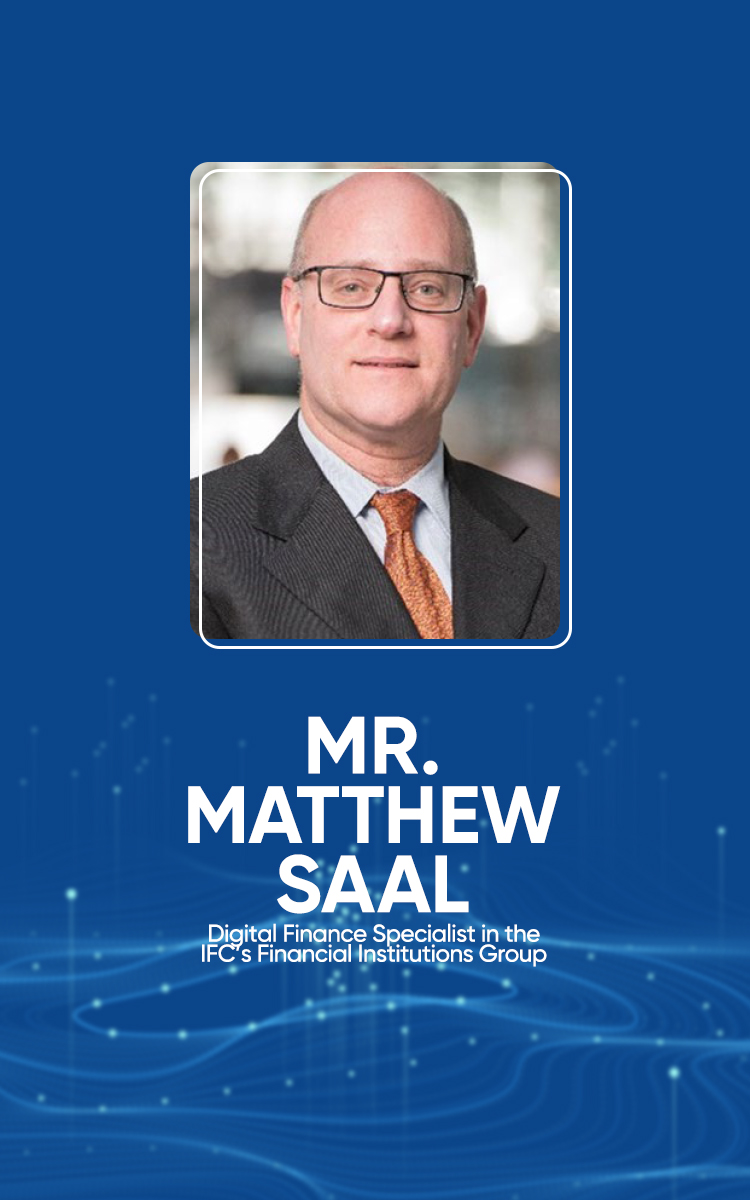 |
Mr. Matthew Saal, Digital Finance Specialist at IFC's Financial Institutions Group
Matthew Saal is a Digital Finance Specialist in the IFC's Financial Institutions Group. Matthew joined IFC in 2016, and covers digital financial services and financial infrastructure advisory work, partnerships, and investments in innovative financial services providers. During 2018-2019 Matthew was a World Bank Presidential Fellow
seconded to the Finance Competitiveness and Innovation Global Practice, focused on fintech policy and fintech for inclusion. He has had a longstanding focus on financial services and financial technology.
Prior to joining IFC, Matthew was Associate Director in the Local Currency and Capital Markets Development initiative of the European Bank for Reconstruction and
Development (EBRD). Prior to joining EBRD in 2010, Matthew worked in emerging markets finance, private equity, venture capital, strategy and business development,
consulting, and international economics. Earlier in his career, Matthew was an economist at the International Monetary Fund advising central banks on banking supervision
and regulation and monetary policy instruments, an analyst at Morgan Stanley creating automated equity valuation and portfolio optimization systems, and an instructor at
Dalian Institute of Technology and St. Catherine's College (Oxford) Kobe Institute. Matthew holds an A.B. in Chemistry from Princeton University and an M.Phil. in Economics
from Oxford University (Balliol College), where he studied as a Marshall Scholar. He has published in the areas of fintech, banking, macroeconomic policy, financial systems
structure, trade, and monetary policy instruments. |
|
| |
| MODERATOR |
|
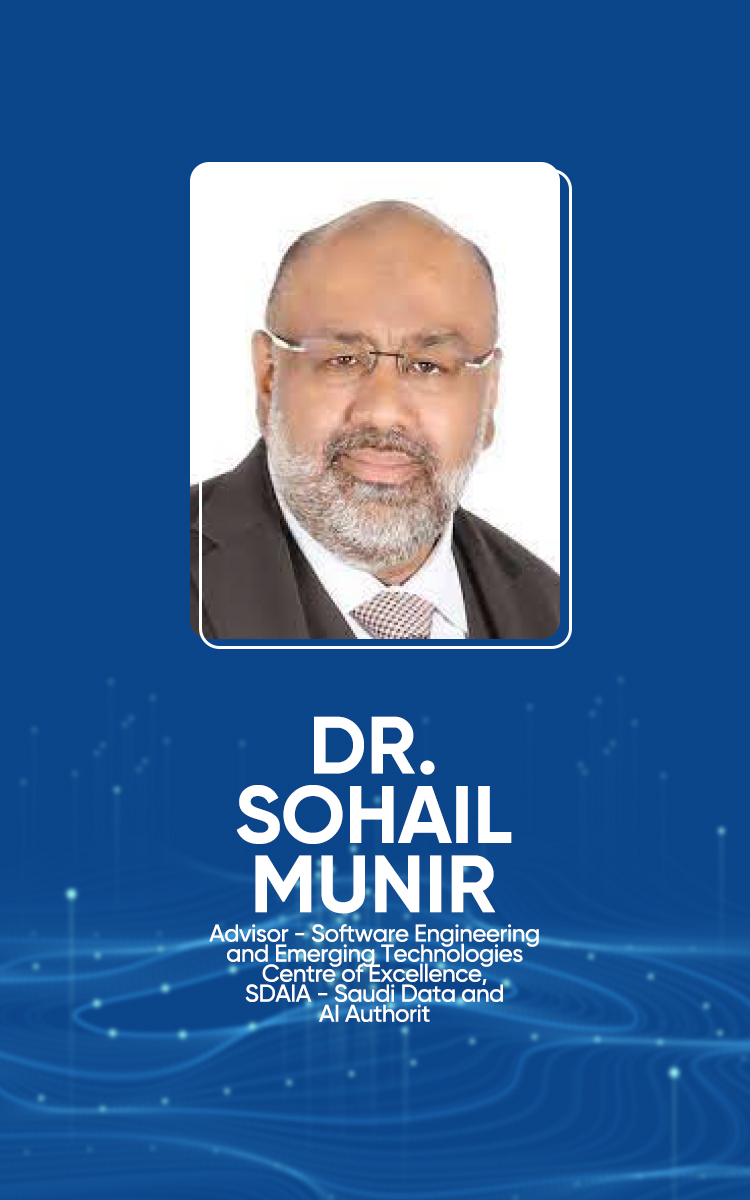 |
Dr. Sohail Munir, Advisor - Software Engineering and Emerging Technologies Centre of Excellence, SDAIA - Saudi Data and AI Authorit
Dr. Sohail Munir is a digital futurist and innovator with a proven track record of driving the adoption of emerging and disruptive technologies. He is a respected thought leader in government digital transformation and is known for engineering exceptional digital citizen experiences. His areas of expertise include GovTech, FinTech, Digital Identity,
Cognitive Cities, API Economy, Open Finance, Open Data, AI, Blockchain, Web 3, Metaverse, Cloud Computing, Digital Payments, AIOps, Statistical Learning, and Machine
Learning.
He is an Advisor to Saudi Data and AI Authority (SDAIA) helping setup a Centre of Excellence for Software Development and Emerging Technologies. In his earlier
engagements, he helped develop the strategy for Citizen Centric Cognitive City for Smart Riyadh. As an advisor to the Neom Authority, Dr. Munir contributed to the Neom
Cognitive Cities Digital Masterplan. In his role as Director and Advisor for Emerging Technologies and Digital Transformation to Smart Dubai, he led the Dubai Blockchain
Initiative and was a key contributor to the Dubai Paperless City Initiative. Dr. Munir also conceived and successfully led the implementation and rollout of UAE PASS, the
National digital identity of UAE. In addition, Dr. Munir has successfully delivered multiple digital transformation initiatives for the Defense and Public Safety sectors in
Pakistan. He is also an investor, co-founder, and advisor to multiple startups in FinTech, LawTech, and PropTech. |
|
| |
|
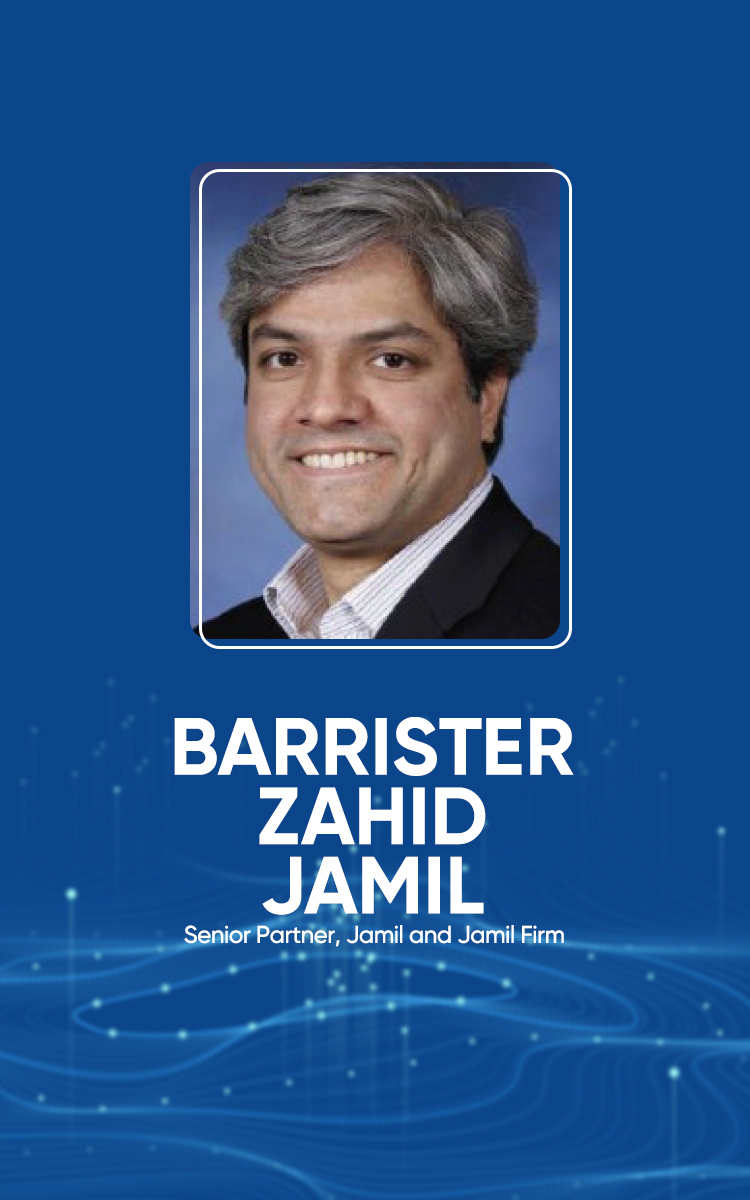 |
Barrister Zahid Jamil, Senior Partner, Jamil and Jamil Firm
Zahid is a Senior Partner with the family law firm of M/s. Jamil and Jamil qualified as a Barrister from Gray's Inn and is currently practicing law in Pakistan specializing in Corporate and Commercial law, Technology, IPR, cyber-crime.
He regularly works with international and domestic IT businesses and at times with Civil Society organizations on issues related to Openness of the Media, in particular the
Internet. He also serves on the Multi-stakeholder Advisory Group to the UN Secretary General on Internet Governance. He participates in several Cyber security related forums
many of which are domestic as well as on several occasions at the Council of Europe Cybercrime Convention Octopus Forum and also at the UNODC, the UN Task Force dealing
with Terrorist Use of the Internet. |
|
| |
| PENELISTS |
|
 |
Dr. Arianne Jimenez, Privacy & Public Policy Manager, APAC at Meta
Dr. Arianne T. Jimenez is the Meta Head of Privacy & Data Policy, Engagement, for APAC and she is part of the company's global Privacy and Data Policy Team. She's responsible for helping drive Meta's strategy and engagement in the region on privacy and emerging tech policy, and data-driven innovation. She is also involved in regulatory
engagement, evaluating and responding to legislative and regulatory developments around privacy and emerging technologies, providing advice on product and policy
development, and building initiatives focused on privacy and emerging technologies.
She brings both an academic and industry perspective, having specialized in privacy law for her Doctor of the Science of Law (J.S.D.) degree, which she obtained from the
University of California - Berkeley School of Law. Her doctoral dissertation was on 'Working towards a Data Protection Soft Law Framework for the ASEAN Region'.
She obtained her Master of Laws (LL.M.) degree from the same institution, where she obtained a Certificate of Specialization in Intellectual Property and Technology Law.
During her time in Berkeley, she was also a Graduate Tutor and a Research Assistant, focusing her efforts on legal research and writing, and US privacy.
During her legal career in the Philippines, from which she hails, she clerked for a former Chief Justice of the Supreme Court, worked as Legal Counsel and Data Protection Officer for a tech company, and taught law subjects at De La Salle University. She's also published articles on intellectual property law and cyberlaw. |
|
| |
|
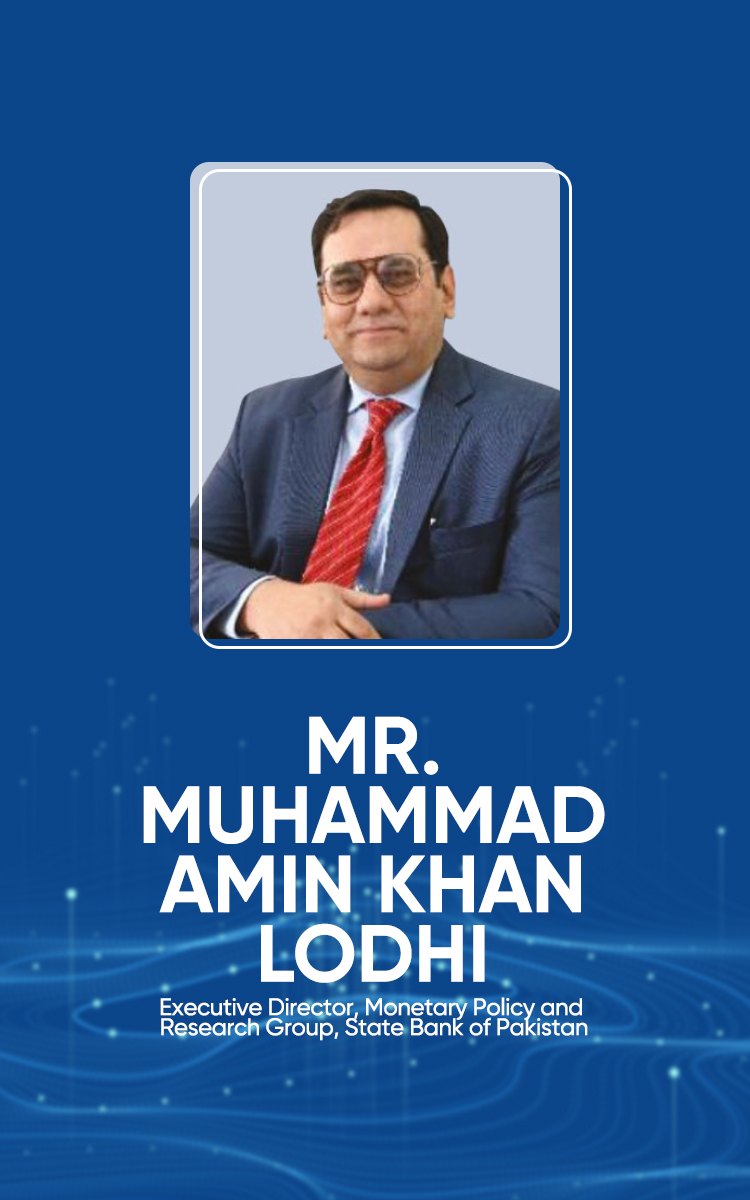 |
Mr. Muhammad Amin Khan Lodhi, Executive Director, Monetary Policy and Research Group, State Bank of Pakistan
As Executive Director at the State Bank of Pakistan, Mr. Amin Lodhi is currently leading the central bank's monetary policy and economic research activities. He is a seasoned
central banker, with diversified experience in both formulation and implementation of monetary and exchange rate policies in Pakistan. He has been deeply involved in
landmark initiatives undertaken at the State Bank, including the adoption of the market-based exchange rate regime; designing and implementing the interest rate corridor
framework for implementing monetary policy; and managing and reforming the Primary Dealers System of government securities. Mr. Lodhi also has extensive experience
in representing the central bank during official interactions with multilateral agencies, foreign investors, and other central banks. Mr. Lodhi obtained his Master's degree in
Development Economics from Williams College, US, and in Economics from the University of Karachi. |
|
| |
|
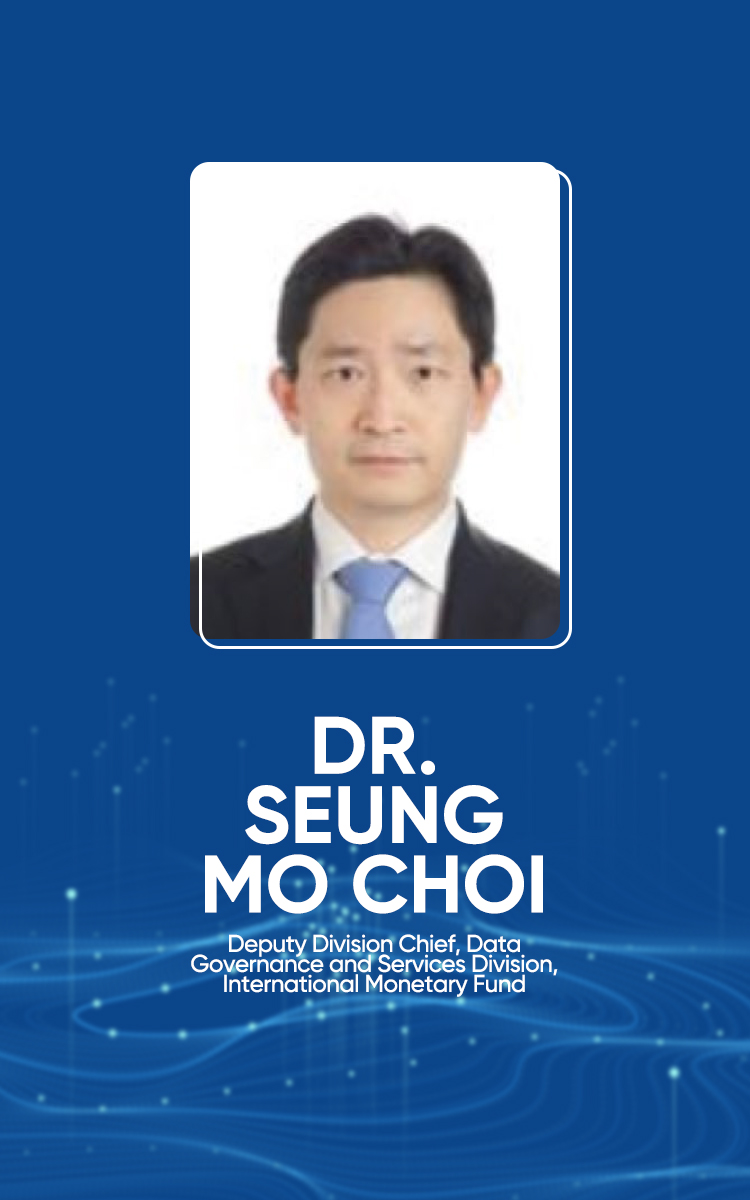 |
Dr. Seung Mo Choi, Deputy Division Chief, Data Governance and Services Division, International Monetary Fund
Seung Mo Choi is a Deputy Division Chief in the Statistics Department of the IMF, leveraging Big Data and innovative statistical techniques to enhance the IMF's surveillance and research efforts. Previously in African Department, he contributed to program negotiations and reviews, including on Rwanda's Resilience and Sustainability Trust
program, and led analytical projects encompassing GDP nowcasting, climate change, inflation, and debt. He also worked in the European Department and the Institute for Capacity Development. Originally from Korea, he holds a B.A. in Economics from Seoul National University and his Ph.D. in Economics from the University of Chicago. |
|
| |
|
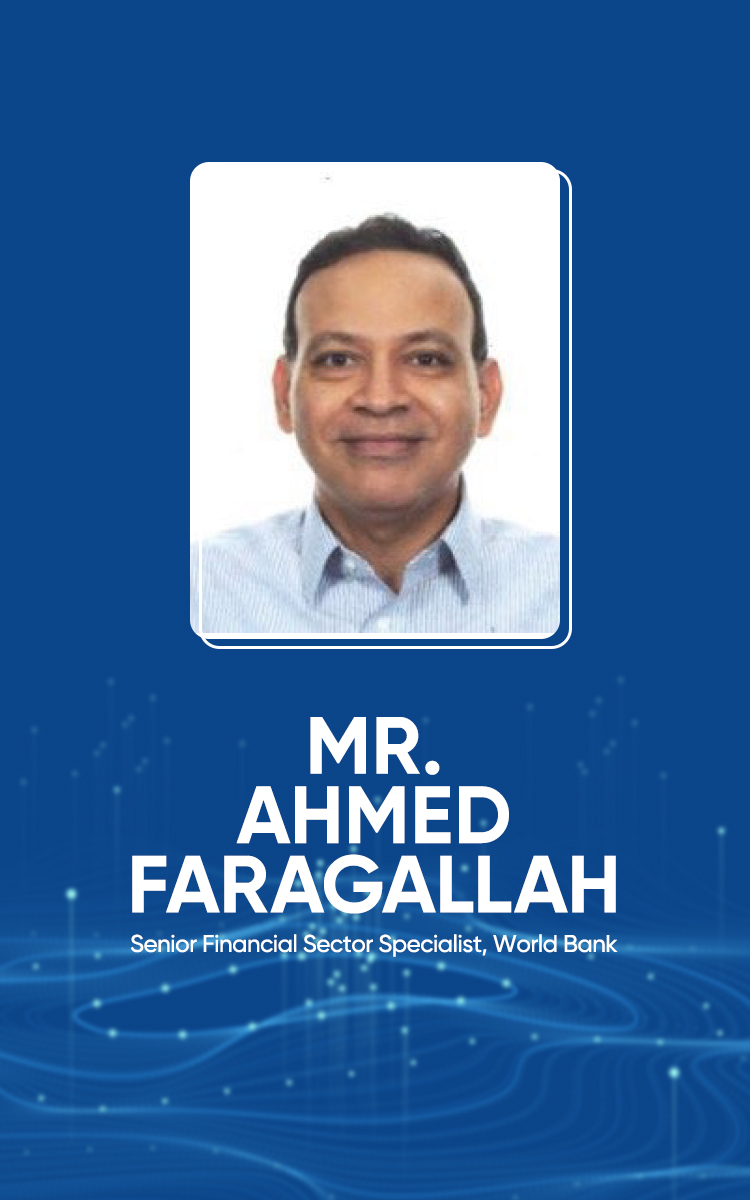 |
Mr. Ahmed Faragallah, Senior Financial Sector Specialist, World Bank
Ahmed Faragallah is a Senior Financial Sector Specialist at the World Bank, working for the Payment Systems Development Group (PSDG). The PSDG is responsible for
providing Global support to WB clients for payment systems, market infrastructure, remittances, and payment aspects of financial inclusion. Ahmed leads several WB projects
in Kenya, Sudan, Ethiopia, Kyrgyz Republic, Egypt, Pakistan, Yemen, Mauritania, Uzbekistan, and Tajikistan; and co-chairs the electronic payment acceptance global initiative.
He worked with market Infrastructure projects like RTGS, CSD, Cards Switch, Fast payment system, and ACH; fintech initiatives, financial inclusion, including regulations of
mobile wallets, interoperability, card regulations; and AML simplified due diligence. Before joining the WB, Ahmed managed the Payment Systems Department in the Central
Bank of Egypt for twelve years and worked for IBM for seven years. He holds a Certificate in Fintech from Harvard University. He holds an MBA from Georgia State University,
Atlanta, GA. He graduated from faculty of Engineering, ASU, Egypt. |
|
| |
|
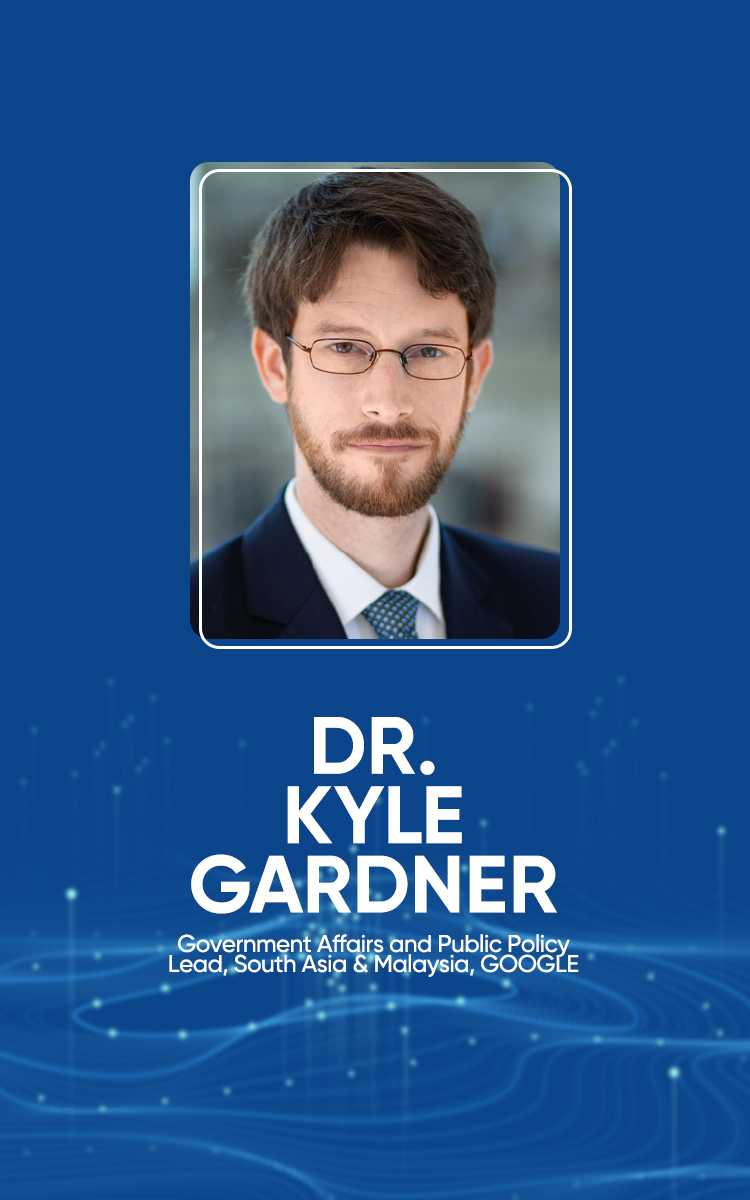 |
Dr. Kyle Gardner, Government Affairs and Public Policy Lead, South Asia & Malaysia, GOOGLE
Kyle Gardner leads public policy for Google in Pakistan, Bangladesh, Malaysia, Sri Lanka, Mongolia, Nepal, Bhutan, and Maldives. He is also a nonresident senior fellow at the
Atlantic Council's South Asia Center.
Prior to Google, Gardner was a senior associate at McLarty Associates, where he helped companies navigate policy issues across South Asia. Before joining McLarty in 2019,
he taught South Asian history at the University of Chicago. He received a PhD, with distinction, from the University of Chicago; an MA from the University of Chicago; and a
BA, with high honors, from Wesleyan University.
|
|
| |
|
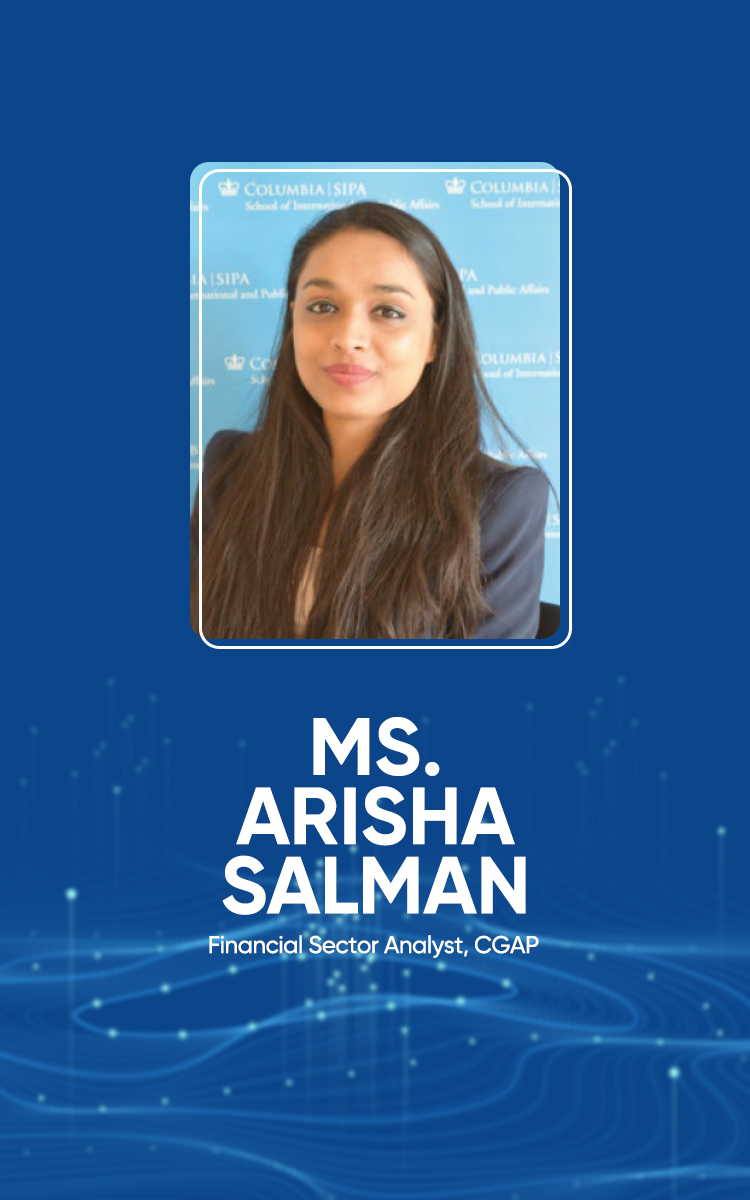 |
Ms. Arisha Salman, Financial Sector Analyst, CGAP
Arisha Salman is a Financial Sector Analyst with CGAP (which is housed at the World Bank in Washington DC). Her work is focused on unlocking how data can enhance the
value of financial services for low-income and underserved individuals with a focus on the development, implementation, and scale-up of Open Finance frameworks as well
as on closing gender gaps at the country level. Arisha was also a member of the team that developed the Strategy for CGAP VII. She previously supported CGAP's work on
Digital Business Models with a focus on Inclusive Digital Banking and the Digital Divide. Before joining CGAP, Arisha worked for over 5 years on digital financial inclusion, SME
development and gender mainstreaming in South and Southeast Asia. She has held positions as a Management Consultant with the Financial Services Practice at
PricewaterhouseCoopers and with the Gender Equity Thematic Group at the Asian Development Bank. Arisha holds a master's degree in public administration from Columbia
University's School of International and Public Affairs and an undergraduate degree in Economics from the University of Delhi. She is fluent in Hindi and Urdu.
|
|
| |
|
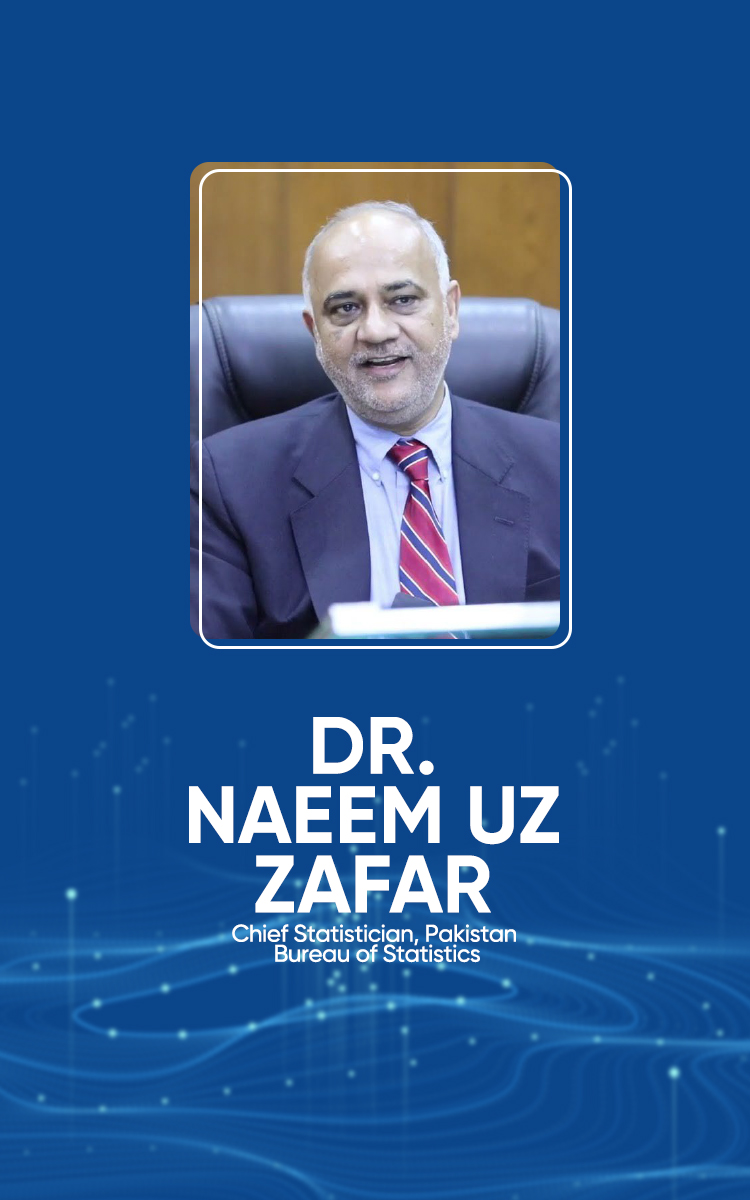 |
Dr. Naeem uz Zafar, Chief Statistician, Pakistan Bureau of Statistics
Naeem uz Zafar is currently working for the Government of Pakistan as Chief Statistician. Previously, he worked for the Government of Sindh as Chief Economist, for UNDP as
Senior Advisor, and for the Planning Commission as Member Social Sector. Before joining the government, he was Assistant Professor and Head of Graduate Economics
program at Institute of Business Administration, Karachi. His research interests include development management, value chains, cluster development, urban development,
and impact evaluation.
Dr. Naeem did his doctorate in economics from Northern Illinois University, USA in 2010. Prior to that, he did his MBA from IBA, Karachi and undergraduate in Mechanical
Engineering from NED University, Karachi in years 1998 and 1990 respectively. |
|
| |
|
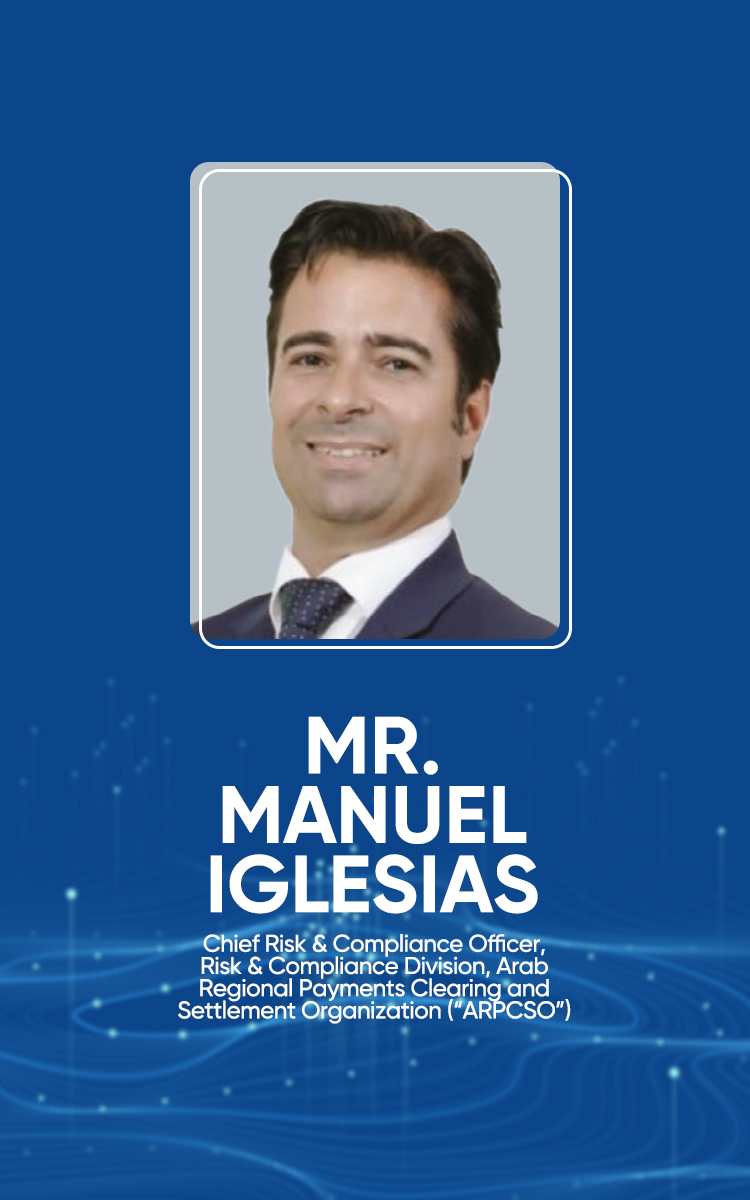 |
Mr. Manuel Iglesias, Chief Risk & Compliance Officer, Risk & Compliance Division, Arab Regional Payments Clearing and Settlement Organization ("ARPCSO")
Manuel Iglesias is the Chief Risk & Compliance O�cer at Arab Regional Payments Clearing and Settlement Organization (ARPCSO)/Buna. Mr. Iglesias has over 20 years of
experience in the financial sector, with an extensive background covering corporate governance, regulatory, prudential, and financial crime compliance.
Prior to joining ARPCSO/Buna, Mr. Iglesias held several senior compliance positions with Deutsche Bank and JPMorgan in Spain, and lately acting as Compliance
Director/MLRO with ADS Securities/ADS Investment Solutions in Abu Dhabi, United Arab Emirates. Mr. Iglesias holds a bachelor's degree in law from the University of Santiago
de Compostela (Spain) and is a Certi�ed Compliance Professional.
|
|
|
|